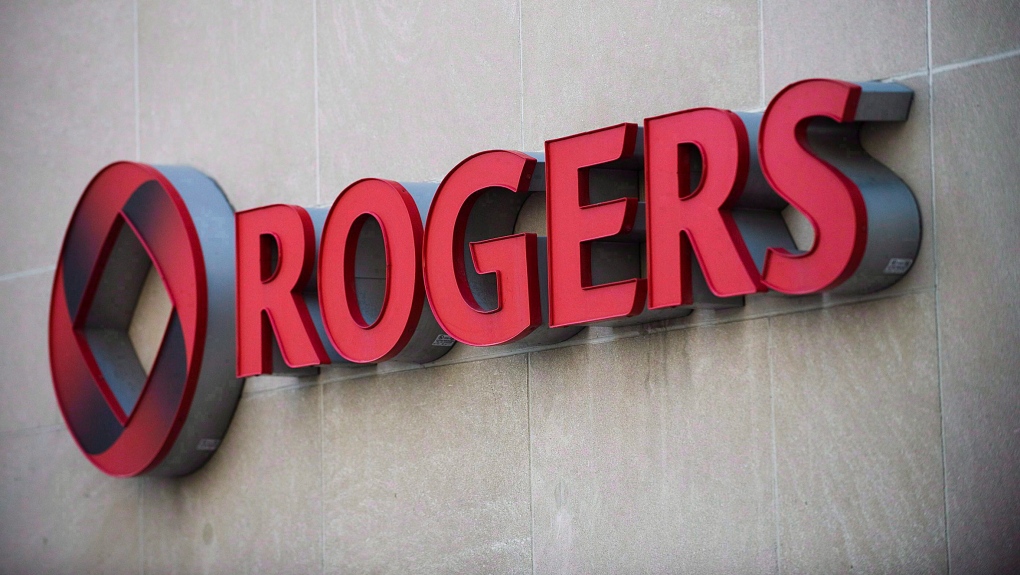Rogers says service is back for most customers after outage
 The Rogers Communications sign is marks the company's headquarters in Toronto, April 25, 2012.THE CANADIAN PRESS/Aaron Vincent Elkaim
The Rogers Communications sign is marks the company's headquarters in Toronto, April 25, 2012.THE CANADIAN PRESS/Aaron Vincent Elkaim
Interac says its services are fully available again after debit transactions were halted by a widespread Rogers network outage impacting mobile and network services across much of Canada.
Interac issued a statement on its social media platforms apologizing for the inconvenience and saying it is adding a supplier to bolster service access in the future.
Rogers Communications says it has restored mobile and internet service for “the vast majority” of customers after the outage that got underway early Friday morning and lasted more than 15 hours.
Debit transactions and 911 access were among the many regular services disrupted by the outage.
Rogers says some customers may experience delays in regaining full service as its network comes back online and traffic volumes return to normal.
The Toronto-based telecom giant apologized for the disruption the outage caused and said it will be proactively crediting all customers.
It says its technical teams continue to work hard to ensure the remaining customers affected by the outage are back online as quickly as possible.
Tony Staffieri, chief executive and president of Rogers, said in an open letter that the company apologizes for the service interruption but offered no explanation for the outage or how many customers were affected.
Staffieri said Rogers is committed to understanding the cause and would make changes to meet and exceed expectations in the future.
CTVNews.ca Top Stories

'Why would I box myself in?': Singh on why he won't commit to helping bring Trudeau's gov't down, yet
NDP Leader Jagmeet Singh says U.S. president-elect Donald Trump's looming tariff threat is part of the reason why he's not committing to voting non-confidence in Prime Minister Justin Trudeau's government.
'An enormous problem': Court delays plague criminal cases across the country
Legal delays are making it increasingly difficult for people to have their day in court. One Saskatoon family says they missed out on justice after delays forced the judge to stay proceedings in an impaired driving case that killed their daughter.
Donald Trump says Canada becoming 51st U.S. state is 'a great idea.' Jean Charest calls the comment a 'wake-up call'
U.S. President-elect Donald Trump is taking aim at Canada once more, saying it would be 'a great idea' to make it America's ‘51st state.'
B.C. man drops camera into ocean, accidentally captures 'breathtaking' whale video
Before it turned into an extraordinary day, Peter Mieras says it began being quite ordinary.
Police suspect Utah father killed his wife and 3 kids, wounded son, then killed himself
Five people were found dead in a Utah home after a man apparently shot his wife and four children before killing himself, police said Wednesday. A 17-year-old boy survived but has a severe brain injury.
Invasive 'murder hornets' are wiped out in the U.S., officials say
The world's largest hornet, an invasive breed dubbed the “murder hornet” for its dangerous sting and ability to slaughter a honey bee hive in a matter of hours, has been declared eradicated in the U.S., five years after being spotted for the first time in Washington state near the Canadian border.
What's the best treatment for ADHD? Large new study offers clues
Stimulant medications and certain therapies are more effective in treating ADHD symptoms than placebos, a new study on more than 14,000 adults has found.
'It's a giant mess': Confusion remains about the GST/HST holiday
The organization representing small and medium size businesses in Canada says the start to the GST and HST holiday has been 'a giant mess.'
'You're either with Beijing or you're with Washington': Ford says to Mexico in CNN interview
Ontario Premier Doug Ford has a message for Mexico as the threat of tariffs by incoming president Donald Trump hangs over both sides of the U.S. border.

































